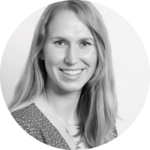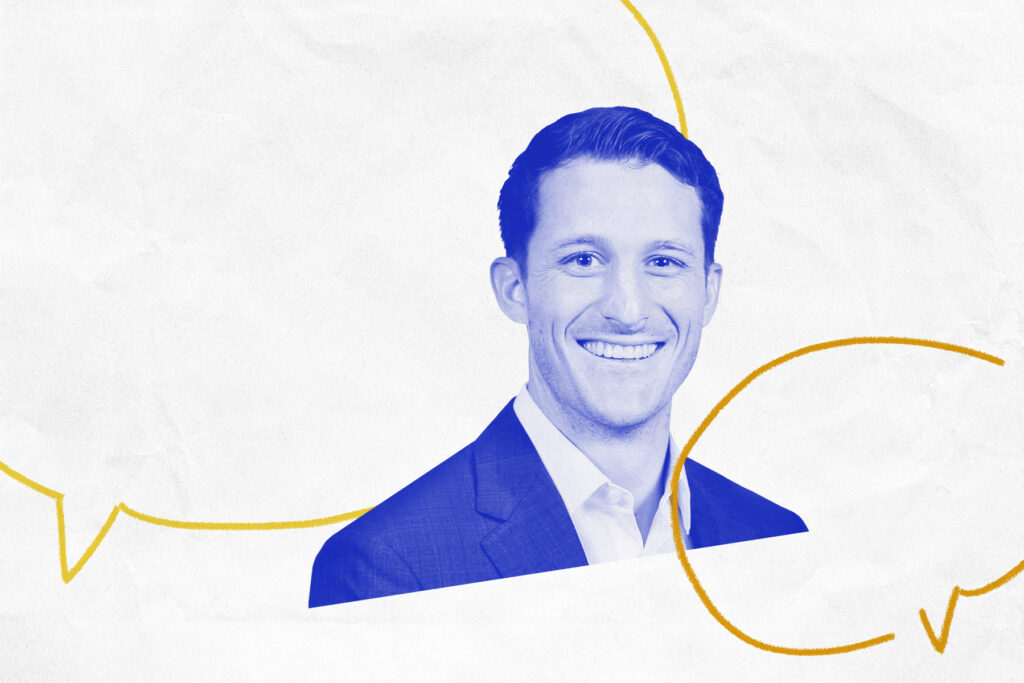Tucked into a corner of Preston Center, White Rock Coffee is one of my go-to meeting spots in the area, both for its convenient location and quality coffee. It’s one of four DFW venues the company has opened since its launch in 2005. Founded by Nancy and Bob Baker, White Rock Coffee also owns a Brew Lab, where it holds home roasting courses and more.
It was in the Preston Center locale that I recently met up with Robert Nickell, CEO of business process outsourcing company Rocket Station. Because White Rock roasts direct-trade beans (meaning they talk directly to coffee growers and farmers to source their beans), I opt for a café au lait—drip coffee topped with steamed milk—a good gauge of a roast’s quality, softened a bit more compared to a straight black coffee. Nickell takes the plunge, diving into a black drip as we settle into a booth. The brews did not disappoint.
Nickell left a burgeoning career in real estate to launch his venture in 2018, leaning on mentorship from Kevin Harrington of Shark Tank fame and other successful entrepreneurs. The company outsources business processes to workers in the Philippines—with high involvement from Rocket Station throughout the hiring process. Services range from inside sales and virtual bookkeepers to executive assistants, customer service teams, and IT support.
Caffeine boost at the ready, Nickell shared his beginnings, goals, and more. Here’s a recap of our conversation.
D CEO: You started your career by briefly working in the corporate world before switching to real estate?
Nickell: “Yes. I quit my corporate job about two years out of college—I was an analyst for a medical debt purchaser—and jumped into real estate full time. I worked with Wes Dorsey, who was a real estate investor, primarily. I didn’t want to go [the typical real estate firm route]; I wanted to learn the system of investing. So, I worked as a retail real estate agent under Wes, who ran a really good team. He became my mentor, and we were like best friends. He’s a lot older than I am, but we had a great relationship.
I loved real estate. I started doing a couple transactions a month and then that turned into a couple of transactions a week. Soon, I was working between 80 and 90 hours a week, and I began to hate my life. I was so stressed out, and it was so over the top—everything was on the verge of chaos at all times. I was complaining to Wes about how busy I was, and how much I had going on, and how hard it was, and he was very blunt. He said, “I’m not going to listen to you bitch, whine, and complain. We all have the same opportunity, and you’re stressed because you’re having some success, right? Those are the best problems to have. You need to figure it out.’”
D CEO: So, what did you do?
“At first, I tried to hire people [to help]. I put ads on Craigslist. I went to Indeed—all the different ways that you can traditionally hire people. I hired friends, family, random people to come to the office, and that was awful. I felt like I was going to have to tell people how to do their job all day and sit there and do everything twice—have someone mirroring me all day.
“[As I was going through this, I heard] from other people who were having the same experiences. It doesn’t matter if you’re a single-member LLC or you’re a big company; HR issues are everybody’s issues. I went back to Wes again. Everything he did across his business was done in the Philippines. The only people he had in his office were agents who had to meet with sellers or do things in-person. Outside of that, everything was outsourced—everything was overseas.
Wes was using different companies that made big promises about what they did—the way they recruited, how much training they did, the investments they made into the team. I started trying it and found that nobody fulfilled any of the promises that they made. I thought, ‘If somebody would just [deliver on their promises], this would be an amazing business.’
“Wes gave [his systems] to me in 2011. I perfected the process of how to recruit, hire, and train team members to come in for a real estate office for every position in the office. I would recruit, train, and hire these teams from Philippines, and then essentially connect them to my friends and people I knew. Somebody at some point was like, ‘This is a business. Why are you doing this for free?’
“So, I started charging in 2013, initially [providing outsourcing] just for real estate. I had a company in the Philippines where I would employ Filipinos, and I would go recruit and screen. I would go hire for those positions, and then hire those out to our clients. It’s just a service agreement. My U.S.-based company has a service agreement with your U.S.-based company. You’re paying me a flat fee for hours work, and nothing up front. The employee works for you, but they’re not your employee. It’s not an independent contractor, but it functions exactly like it.”
D CEO: Why did you focus on hiring out of the Philippines in particular?
Nickell: “When you look at the Philippines, it has an amazing education system, with many people getting graduate degrees. English is a national language—more than 90 percent of the country of over 100 million people speak English, and speak it really well. Geographically, it’s very small, with more than 7,100 islands, but about half the population lives on one island. Manila is almost a 50 million-person city, because it’s just one city that goes out forever. That’s important in that it’s has a large workforce.
“BPO is over 15 percent of the economy. Accenture is one of the largest outsourcing companies in the world, and it has more than a quarter million people [in the Philippines]. IBM and Oracle have hundreds of thousands of people there. JPMorgan Chase has a quarter million people. Fortune 500 companies have been using and leveraging the Philippine system workforce for a long, long, long time.”
D CEO: Once you realized you wanted to do BPO full-time, how did you get Rocket Station off the ground?
Nickell: “In 2018, my business partner and I at the time decided to split. We just had different visions—different directions of where we wanted to go. We were also in different phases of our lives; he was more about stability, and I was more about growth. So, we decided that we were both going to continue doing the exact same thing, just on our own. I started Rocket Station. At that time, my dad had already worked for me for a couple of years. That’s when my brother came in. He was an associate athletic director at the Air Force Academy who lived in Colorado Springs. He came back to Dallas so we could start a family business with Rocket Station. Marc and my dad are the only two partners that I have in Rocket Station.”
D CEO: Your website shows connections to Shark Tank. How did that come about?
Nickell: “I was friends with Kevin Harrington, who is one of the sharks from Shark Tank. I spend a lot of time at masterminds and groups. I knew that if I was the smartest person in the room, that I was in the wrong room. The idea of a mastermind is just a small group of business leaders in a room, sharing both problems and successes for other people to learn from. I was lucky enough to be in some rooms with Kevin Harrington and some other really sharp, amazing business leaders.
Kevin and I become friends. We’d go play golf—just go hang out at his country club. He kind of came on as a strategic advisor. Not from an equity standpoint, he just wanted to help see the business grow. He connected me with a lot of his network and people who needed what we have. All the stuff that you see on the website with the sharks, we earned that through fulfilling the promises that we made.”
D CEO: So, what are your goals for the company going forward?
Nickell: “We determine success based on our clients, and right now, we’re knocking it out of the park. We think we’ve got the recipe down. What started as a real estate service is no longer a real estate service: We do great with SAS, with B2B and all B2B service providers. We’re doing great with financial institutions and with medical sales. From here, we’re going to go from 1,600 [employees] to 5,000 people in the next—I don’t know. I don’t want to be an Elon about it, but I think we’ll be at 5,000 in four to five years.”
This conversation has been edited for clarity and brevity.
Get the D CEO Newsletter
Author



